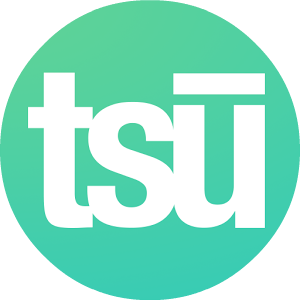 When it comes to SEO and optimal site design, every little change can make a difference and this certainly includes your sites URLs. First and foremost you should try and ensure that the domain name you purchase for your site is relevant. Try to get hold of a domain name encapsulating one or two of the keyphrases that you are planning to use for your site's optimisation. Of course, it is not always possible to do this if for example your domain is already up and running, or if certain names are already being used by other sites. However, one area which you have full control over is the URL extensions for your internal pages.
When it comes to SEO and optimal site design, every little change can make a difference and this certainly includes your sites URLs. First and foremost you should try and ensure that the domain name you purchase for your site is relevant. Try to get hold of a domain name encapsulating one or two of the keyphrases that you are planning to use for your site's optimisation. Of course, it is not always possible to do this if for example your domain is already up and running, or if certain names are already being used by other sites. However, one area which you have full control over is the URL extensions for your internal pages.
Custom URLs
While you might be stuck with your domain name you can control the extensions of the pages on your site. If you are using a CMS for your website it is often a simple option to apply a ‘custom URL’ to an internal page. That way you can ensure that the URL fits with the content that you are providing and possibly contains some of the keyphrases for which you are optimising that page.
For example, if you are running a site dedicated to football equipment with an internal page optimised for ‘custom football boots’, you could tailor the URL to read:
http://www.example.com/custom-football-boots
This improves structure, makes your site look more professional and is easier for users to navigate.
Standards for Good URLs
Within Google, there are a few standards for best practice with URL structure for SEO purposes:
- The length of the URL extension should be between 3 and 5 words. Someone reading it should be able to understandable what its content is, but it should not be too long, as Google’s algorithm will not give much value to extra words.
- Dashes are better to use than underscores. While Google generally has no preference, it more easily recognises words indicated through dash-separation. Also, a dash separated URL like '/football-boots' will still be returned if the user types /football boots. However, this rule does not apply for underscore separated words, making them less user friendly.
- URL extensions are case sensitive, unlike domains, so to keep things simple and to avoid losing visitors due to miss-typed URLs, always stick with lowercase. Uppercase URLs get no extra benefits and since users are more likely to link in lower-case, this can cause duplicate content issues and reduce link strength.
Consistent Linking
Another area which you should always bare in mind for the benefit of your site is the consistency of your links. It’s often the case that during the process of setting up a website, its internal links can get a bit mixed up, leading to inconsistency. You might have three links on any one page pointing to your homepage as:
www.homepage.com
www.homepage.com/index.php
homepage.com
This inconsistency can weaken the strength of your homepage as its strength is divided over three variations.
While there is no rule for which format to use, it is better to have all internal homepage links point to the format:
www.homepage.com/
It has the neatest appearance and means you have a consistent homepage URL.
There is one simple rule for applying consistent URLs which should be obeyed: Always be as precise as possible. You may have internal links in your navigation which only define the extension of the page they are linking to:
E.g. /internalpage/info.html
Your navigation links should be constructed to provide the full URL they are pointing to:
www.homepage.com/internalpage/info.html
This is good for the navigation and consistency of your site as well as making the code more easily understood and making navigation simpler for the user.
Rewrite Non_WWW
One thing you can’t account for is the inconsistency of searchers. Some people will search for your site with the www intact, some will omit it. The result of which is an inconsistent homepage which will have reduced strength as it is sharing its strength over at least two URL variations.
To fix this, all you have to do is apply a rewrite function to your sites '.htaccess' file:
Options +FollowSymlinksRewriteEngine onrewritecond %{http_host} ^homepage.com [nc]rewriterule ^(.*)$ http://www.homepage.com/$1 [r=301,nc]
By placing this function in your '.htaccess' file you can ensure that every time someone arrives on your site, whether they use 'www' or not, they will be redirected to www.homepage.com. This function is for a php site on a specific server, so it is important to research which rewrite function applies to your situation.
Quick and Organised Navigation
Finally, you should ensure that your site has a very well organised navigation. For usability this is obviously important but it also effects how Google indexes your site and passes strength from page to page.
If for example some of your major pages are not directly accessible from the home page, or you have varying link structures on different pages, then this will adversely affect your site in two ways: Firstly, users will become frustrated with the unintuitive navigation or simply won’t reach the pages you want them to. Secondly, Google will crawl your site, and value your internal pages very poorly as they aren’t well organised.
Consistency is Key
The running theme for all of these changes is consistency. Your site should be; well structured with a well organised navigation that is consistent from page to page; your URLs should be consistent to a format that is legible for your users and for Google; and your internal links should be CONSISTANT and written in full.
With all of this in place users will see your site as more professional, organised and trustworthy…and as an added bonus so will the search engines.
Http image by jscreationzs courtesy of FreeDigitalPhotos.net
- Why Invest In Content Marketing? - March 12, 2013
- Why Creative Copywriting Can Make or Break Your Brand - March 12, 2013
- What is Your Sites Link Profile Saying about You? - February 19, 2013
- Can a Small On-line Business Really Compete with the Big Boys? - February 19, 2013
- Ramsay’s Web Wire – Issue #40: Sleet, Snow and SEO - December 3, 2010
- Ramsay’s Web Wire – Issue #39: Out of the Google Frying Pan… - November 26, 2010
- Ramsay’s Web Wire – Issue #38: The Google, the Bad and the Ugly - November 19, 2010
- Ramsay’s Web Wire – Issue #37: Google Jams A Few Rockets In Your Pocket - November 5, 2010
- Ramsay’s Web Wire – Issue #36: Google Gets All Up in Your Business - October 29, 2010
- Ramsay’s Web Wire – Issue #35: Google’s Groovy Giftset - October 22, 2010
You may also be interested in:
- What Do Longer Searches Mean for Website Optimising? Results gathered to measure trends over the last four years showed that significant drops in one and two word key...
- Google Webmaster Tools Improves Link Analysis Information Check your links! ...
- Finding the Best Website Link Building Techniques Link Building can be a tricky old game. Find out some of the good methods and those that should probably...
- The XML Sitemap – Like A Tour Guide For Your Website Our indispensible guide to XML Sitemaps and how to create them! ...
- Webmaster Videos – Speed Cloaking, Nofollow Internal Links and Browser Dependant Google SERPs! The Matt Cutts SEO surgery is open! ...





